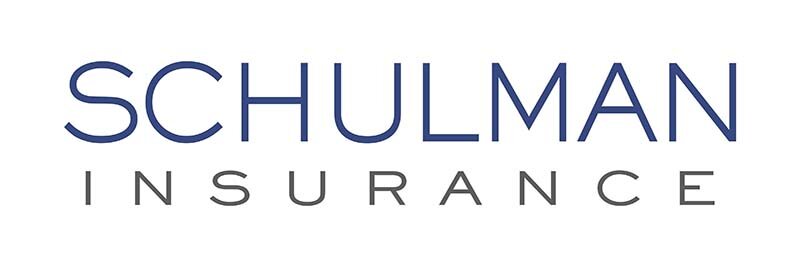IRS Guidance Provides Helpful Clarification for HDHPs
On October 17, 2024, the IRS released two key pieces of guidance, Notice 2024-75 and Notice 2024-71, which provide important updates for plan sponsors offering certain tax advantage health plans.
Briefly, the guidance:
• Expands the items and services that may be treated as preventive care in a qualified high deductible health plan (“HDHP”) with a health savings account (“HSA”) to include:
• all types of breast cancer screenings;
• continuous glucose monitors (“CGMs”) for individuals diagnosed with diabetes; • insulin delivery devices; and
• over-the-counter (“OTC”) oral or emergency contraceptives and male condoms.
• Creates a safe harbor to include condoms as a qualified medical expense under IRS Code Section 213(d).
Below you will find additional details from the guidance.
Definition of Preventive Care for HDHP/HSA Plans Expanded (Notice 2024-75)
Background
An HDHP, in part, is a health plan with a minimum deductible set by the IRS ($1,650 for self-only coverage and $3,300 for coverage other than self-only for 2025). Generally, an HDHP may not provide benefits for any year until the individual satisfies the minimum deductible. However, there is a safe harbor that permits coverage for preventive care prior to meeting the deductible. Over the years, through statutory amendments as well as IRS guidance, the definition of preventive care has expanded and evolved.
What’s New
Notice 2024-75 further expands the items and services that may be considered preventive care in an HDHP.
1. Breast Cancer Screenings. The guidance clarifies that all types of breast cancer screening (e.g., mammograms, Magnetic Resonance Imaging (“MRIs”), ultrasounds, and similar breast cancer screening services) are considered preventive care. This change is effective as of the date of the original guidance, April 12, 2004.
2. Continuous Glucose Monitors. Earlier guidance permits an HDHP to treat a glucometer as preventive care for an individual who is diagnosed with diabetes for the purpose of preventing or exacerbating the condition or developing a secondary condition. This new guidance clarifies that a CGM is considered preventive care under the same circumstances as other glucometers if the CGM is measuring glucose levels using a similar detection method or mechanism to other glucometers (i.e., piercing the skin). If a CGM has additional functions, each function must be for preventive care for an HDHP to cover any benefits of the CGM before the deductible is satisfied. For example:
• if the CGM both monitors glucose and provides insulin, it may be treated as preventive care because it is a device delivering insulin.
• if the CGM provides additional medical or non-medical functions that are not preventive care (other than minor functions, such as clock and date functions), then the HDHP may not cover the CGM before an individual satisfies the minimum annual deductible for an HDHP
This change is effective as of July 17, 2019.
3. Insulin. The Inflation Reduction Act (“IRA”) created a statutory safe harbor that permits first-dollar coverage for “selected insulin products” in an HDHP effective for plan years beginning on or after January 1, 2023. IRS Notice 2024-75 confirms that “selected insulin products” is interpreted to include any device used to administer or deliver the selected insulin products. This guidance is effective for plan years on or after January 1, 2023. OTC oral contraceptives. The guidance confirms
4. OTC oral contraceptives for a covered individual potentially capable of becoming pregnant, including, but not limited to, OTC birth control pills and emergency contraception, regardless of whether they are purchased with a prescription, may be treated as preventive care, effective for plan years that begin on or after January 1, 2023.
5. Male condoms. Male condoms (with or without a prescription) may be treated as preventive care regardless of the gender of the individual covered under the HDHP who purchases them, effective for plan years that begin on or after January 1, 2023.
This guidance addresses items that may be treated as preventive care in a HDHP. It does not address (or expand) the requirements under the Affordable Care Act for non-grandfathered group health plans to provide certain preventive care items and services without cost-sharing in-network.
213(d) Safe Harbor Includes Condoms as a Medical Expense (Notice 2024-71)
Background
Under Section 213(d), the IRS allows taxpayers to receive tax advantages for certain medical care. Certain services, such as hospital visits, prescription drugs, and recently certain OTC products like menstrual products are considered medical care under Section 213(d). Over the years, the IRS has expanded the definition of the items and services included in Section 213(d) for purposes of receiving reimbursement from a health plan with a tax advantage, such as health FSAs, HRAs, and HSAs.
What’s New
IRS Notice 2024-71 provides a safe harbor and will treat amounts paid for condoms as a Section 213(d) medical expense. This means amounts paid for condoms are treated as an expense for medical care and eligible to be paid (or reimbursed) from an HSA, HRA, or health FSA.
Employer Action
Employers may wish to evaluate their plan offerings to enhance the overall value of their plans and explore opportunities to further support employee health and wellness through preventive services.
Specifically:
• While not required, employers with HDHP/HSAs may consider expanding what is considered preventive care under the HDHP to incorporate items and services in the updated guidance.
• Condoms may be reimbursed (or paid for) through a health FSA, HRA, or HSA on a tax favored basis.
These changes may require plan documents to be updated to accurately reflect changes to the plan. Any changes should be communicated to plan participants timely. Employers should confirm their carriers and TPAs are prepared to implement changes accordingly.
